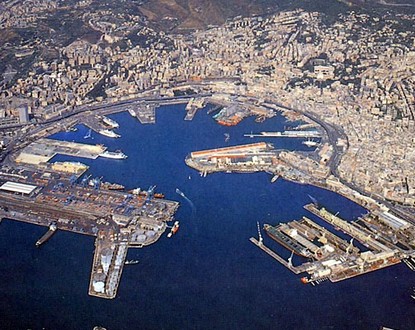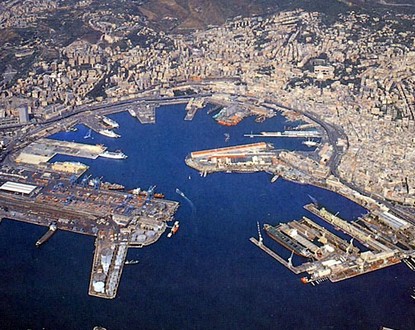Frankly, this quarrel between development to the east (towards Italy) or west (towards Marseille) does not seem very serious! Announced with great fanfare in recent months, the new alliance between Nice and Genoa has become the new focus of the international politics of the Deputy Mayor of Nice, Christian Estrosi.
 But is it for its potential or simply for its opposition (even if only geographical) to Marseille, given the rivalry between Nice and its regional capital?
But is it for its potential or simply for its opposition (even if only geographical) to Marseille, given the rivalry between Nice and its regional capital?
This is the feeling one gets after attending the presentation by Christian Estrosi and then the reaction, before and after, the deliberation (unanimously, however) regarding accession to the MOT (Transboundary Operational Mission) during the last meeting of the Nice Côte d’Azur Community Council.
A technical act, which does not have much importance, but confirms all the interest in the “Italian” option.
While it is indisputable that Nice (which will soon be more of a metropolis than a city) must “engage more than ever in a vigorous policy of European openness” and “position itself as a metropolis at the heart of both Europe and the Mediterranean” – according to Christian Estrosi, it is still necessary to have clear ideas and fully understand the context. In fact, this partnership with Genoa should be a means, not an end!
The connections to be established in rail transport (LGV) and maritime (MOS24-Motorways of the Sea) should allow Nice to get closer, via the capital of Liguria, to the “corridor 5” of the European Union’s rapid mobility plan, the one that goes from Lisbon to Kiev via Marseille/Lyon and Turin/Milan and that, from Milan, can connect, via the Gotthard tunnel under construction, Switzerland and Baden-Württemberg on one side and Bavaria and its capital Munich via the future Brenner tunnel on the other.
Lombardy and southern Germany (which are among the wealthiest and most performing regions of Europe) and Central Europe (with its potential for development and growth yet to be expressed) should be the real objectives of Nice’s international policy and its economic fabric, with Genoa playing the role of a “gateway” (except for some occasional benefits).
Will Nice be the future “Metropolis” worthy of its ambitions, capable of thinking “big and far”? Or will the local rivalries prevail? Can an international policy be built with a regional horizon?
To be continued…



